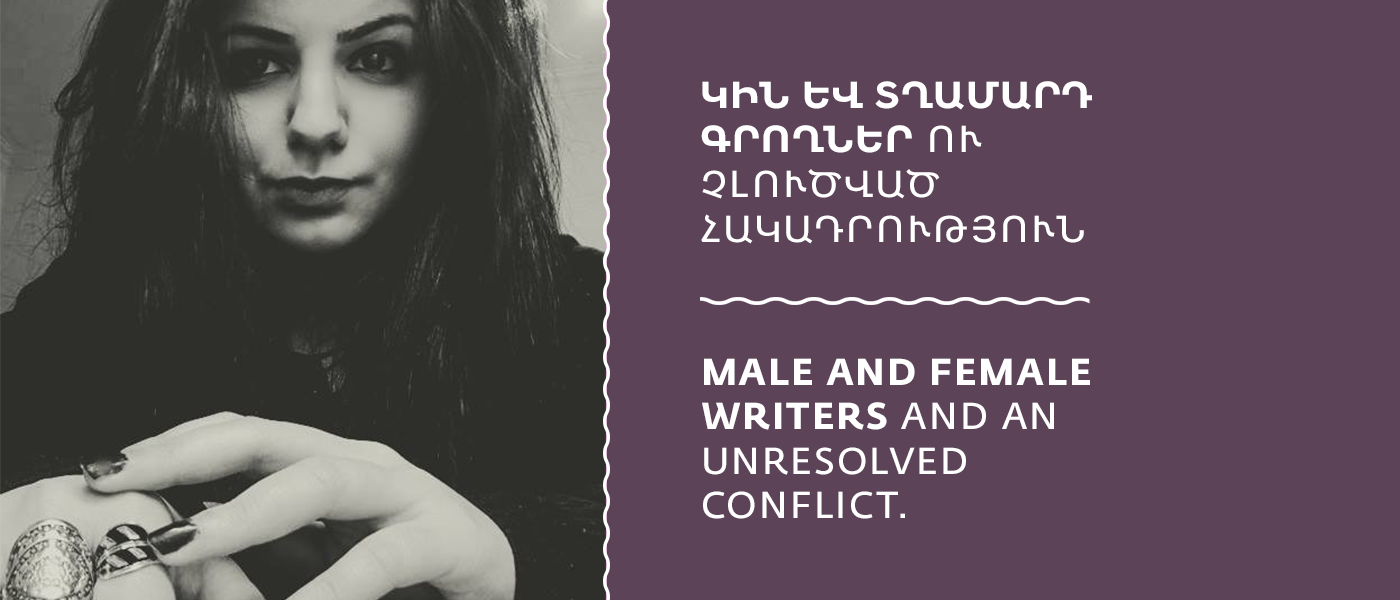
I am Syune…
I’m Syune and I am 25 years old. I started to write very early․ I have short stories written when I was 9-10. But I started writing seriously when I was 15 and when I started my blog, which was entitled Everything about Nothing.
Everything about Nothing
I remember very well the very first short story, and I even consider the date, November 22, when it was first published, to be my second birthday, perhaps because it was one of the most important dates for me. So, my first short story was about an ordinary broom, the one with which you sweep the floor. It was a very short, essay-like story and it was the beginning of the process of writing which continues up to now.
“Addiction”, 24 years old- 24 short stories
My first book, “Addiction” was published in 2019. It is a collection of short stories written over the past few years; we selected 24 short stories as I was 24 at that time, and it was a kind of symbolic gesture, sort of a summary of the certain period. The next book I’m writing currently and also the next ones will certainly be novels.
Addiction may harm your health
Addiction is a sign of weakness and contains an “unhealthy” element in itself, though people sometimes in their personal relations consider having an “addiction” as something positive. But, I guess, no healthy relationship can be built on addiction. Moreover, the addictions, as they are, have a negative shade. Entitling the short story Addiction and then also the collection of short stories I made an attempt to play over that idea and draw attention to it.
It’s difficult to describe my second book in several words, but it again refers to the relations, families and just as far as I write I feel that it’s turning into a family novel, a novel about a family with no main heroes, but every character and every hero is on the right place and is important.
Women in literature have the same issues as men, but they are a bit underestimated, because they started to write later, which may be probably explained by some historical background or the fact that women started to get education later than men. But it, to no extent, means that women writers are worse or have only some certain topics. Of course, there are no such topics, it’s just that probably women writers may be a little bit more sensitive, a little bit farsighted; they probably can touch upon the topic more sensitively than male writers, who can refer to it in more pragmatic terms.
The problem of Armenian women writers is male writers, because they may keep you under constant pressure. There are certain publishers, literary critics who may kick you out of the literary circles just because you are a woman. I heard myself and was told numerous times that woman is just a muse. Unfortunately, this idea still exists in Armenia. I saw it on the example of my book. When someone opens the book and sees a story about a war, that person seems extremely surprised that a woman can write such a story. Why are you so surprised? Why shouldn’t she be able to write?
When you speak with writers from other countries you can enlarge your scope and see what is going on in the world. And in general, I think that our literature is not anchored, which means that we have really fantastic writers, women and men, whose literature is really good and claims to be among the world bestsellers. This stereotype should be broken; the writers here mostly write for the Armenian reader, as we only try to write for Armenia or for Yerevan, but the literature should not be anchored to specific places and readers. And when you speak to writers from other countries you see the world in a larger perspective and see the possibilities, exchange the experience, you learn a lot from more experienced and mature writers, from which you will definitely benefit and it has only a positive effect.